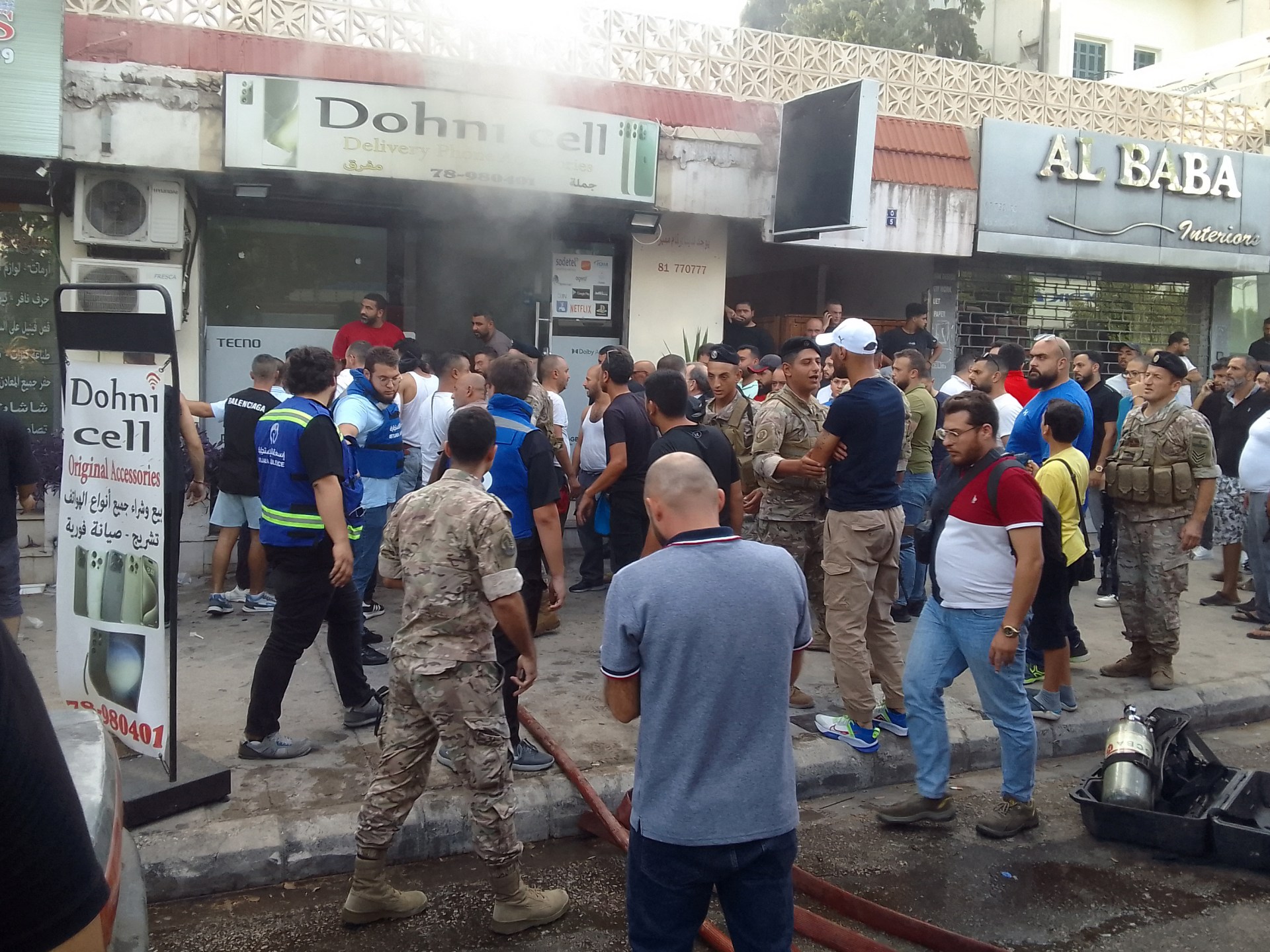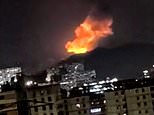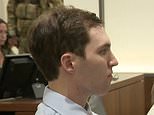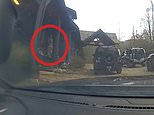
Washington, DC – The explosions of wireless communication devices across Lebanon this week in a series of attacks widely believed to have been carried out by Israel likely constitute a breach of the laws of war, experts say.
That includes the possible violation of prohibitions on indiscriminate and disproportionate attacks, as the blasts have killed dozens of people and injured thousands more.
“You’re not supposed to booby-trap objects that civilians are likely to pick up and use, or objects generally associated with normal civilian use,” said Sarah Leah Whitson, a lawyer and director of the US-based rights group DAWN.
“And this is exactly why we’ve seen the devastation that we’re seeing in Lebanon,” she told Al Jazeera. “Anybody could pick up one of these pagers. We also have no idea who had the pagers, or whether or not they’re legitimate military targets.”
Pagers, walkie-talkies, cellphones and other devices that were apparently associated with members of the Lebanese group Hezbollah exploded in two waves of attacks across Lebanon on Tuesday and Wednesday.
Hezbollah immediately blamed Israel for the attacks, but the Israeli military has yet to comment.
While many details of the blasts remain unclear, they caused devastation across Lebanon: At least 32 people have been killed, including two children and one medic, and more than 3,000 others have been injured.
The series of simultaneous explosions also prompted scenes of panic in the country of more than five million people, with medical centres facing a flood of wounded patients and residents running out into the streets, terrified and confused.
‘Inherently indiscriminate’
While Israel has not confirmed its involvement in the attacks this week, it typically argues that its military operations are justified as part of a fight against “terrorism”.
Israel’s supporters have celebrated the explosions in Lebanon, describing them as “precise”, but the blasts went off around civilians – at funerals and in residential buildings, grocery stores, and barber shops, among other places.
International humanitarian law (IHL) – a set of rules spelled out in global treaties meant to protect non-combatants during armed conflict – prohibits attacks that “are not directed at a specific military objective”.
Whitson said the high casualties of the attacks demonstrate that booby-trapped devices are “inherently indiscriminate”.
“They’re incapable of being directed at a specific military target, and it’s very obvious from what we’ve seen and what was completely predictable that it would injure military targets and civilians without distinction,” she told Al Jazeera.
Whitson added that the explosions were a “deliberate decision on the part of Israel” to create chaos in Lebanon. “This is exactly why booby traps of ordinary civilian objects are illegal – because not only do they cause physical harm and injury, they cause psychological and emotional harm.”
Huwaida Arraf, a US-based human rights lawyer, echoed Whitson’s remarks, saying that the explosions violated the prohibition on indiscriminate attacks as well as a ban on booby-trapping devices associated with civilian use.
That latter curb is laid out in the 1996 Protocol on Prohibitions or Restrictions on the Use of Mines, Booby-Traps, and Other Devices – a UN treaty.
So far, two children are confirmed to be killed, as the attacks in Lebanon continue. A total of 22 children killed since October, and more than 200 injured. #Children must be protected under international humanitarian law at all times. pic.twitter.com/AxZpqYCQUZ
— UNICEF Lebanon (@UNICEFLebanon) September 18, 2024
“It is prohibited to use booby-traps or other devices in the form of apparently harmless portable objects which are specifically designed and constructed to contain explosive material,” the protocol states.
According to Arraf, the only way the attacks could be considered lawful is if steps were taken to protect civilians and ensure that the blasts only hit legitimate military targets.
But the devices exploded across Lebanon with no prior warning.
“There are Israel apologists arguing that this was not an indiscriminate attack but rather very targeted,” Arraf told Al Jazeera.
“As we are learning, these bombs went off in supermarkets and other public spaces. If the target was Lebanese civilians at large, then sure. But this is no less unlawful and, in fact, meets the textbook definition of state terrorism.”
While Hezbollah has a military wing that has been engaged in cross-border clashes with Israel since the outbreak of the war in Gaza in October of last year, it is also a political group with affiliated organisations that provide social services.
Some of the blasts struck members of Hezbollah who are not combatants, according to Lebanese media accounts. For example, Tuesday’s attack killed a medic who worked at Al Rassoul Al Azam Hospital, which is linked to Hezbollah-associated charities.
Arraf said civil servants are to be treated as civilians under IHL unless they are known to partake in military operations. “Would anyone suggest that all Israelis who are affiliated with one of the parties in Israel’s government are legitimate targets?”
Proportionality
On Wednesday, Human Rights Watch said that the restrictions on booby traps were designed to avert the kind of devastation Lebanon is experiencing from this week’s explosions.
“The use of an explosive device whose exact location could not be reliably known would be unlawfully indiscriminate, using a means of attack that could not be directed at a specific military target and as a result would strike military targets and civilians without distinction,” Lama Fakih, the group’s Middle East director, said in a statement.
Fakih also called for an urgent, impartial investigation into the incidents.
Craig Martin, a professor at Washburn University School of Law in the US, was less definitive in his assessment of the attacks.
But he said that they potentially violated some provisions of IHL, including the principle of proportionality and the precaution to avoid harming civilians.
Proportionality is the concept that any harm to civilians by a military action must not be excessive in relation to the “concrete and direct military advantage anticipated”.
“If you don’t know where each of these explosives are, and who – in fact – is going to be injured, it’s hard to see how a very granular assessment of proportionality could have been undertaken, either collectively or in relation to each of these individual attacks,” Martin told Al Jazeera.
He added that it is unclear what the strategic objective of the attack is.
Hezbollah continued its attacks on military bases in northern Israel on Wednesday and the blasts did not appear to have a major effect on its ability to operate.
Beyond direct injuries and the terror that civilians across Lebanon experienced, Martin said the blasts’ “foreseeable” effects on Lebanon’s health system should also figure into discussions about their possible disproportionality.
“The other harm – that absolutely is a concrete harm – that should be factored into the principle of proportionality analysis is the extent to which the attacks paralysed the emergency medical infrastructure of Beirut and elsewhere in Lebanon,” he said.
“I’m guessing that further research will show that people who were not even injured in the attack suffered as a result of what was going on in the hospitals.”







